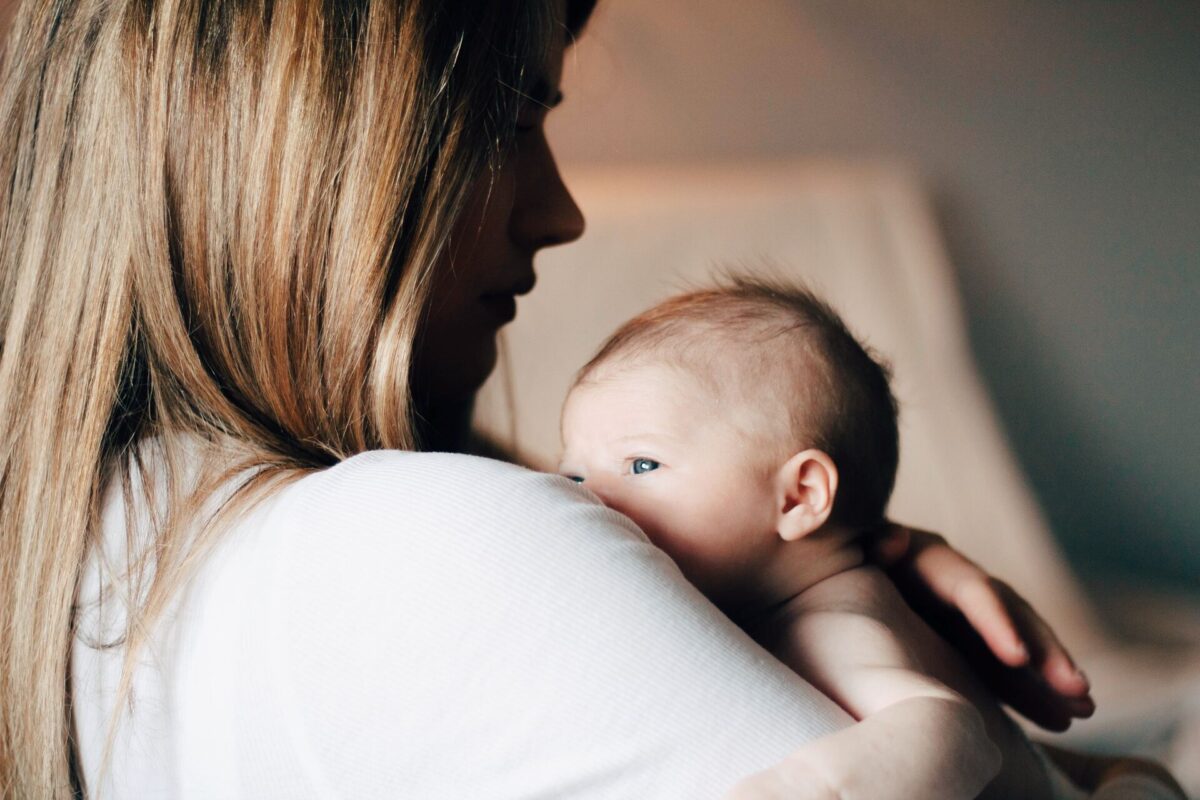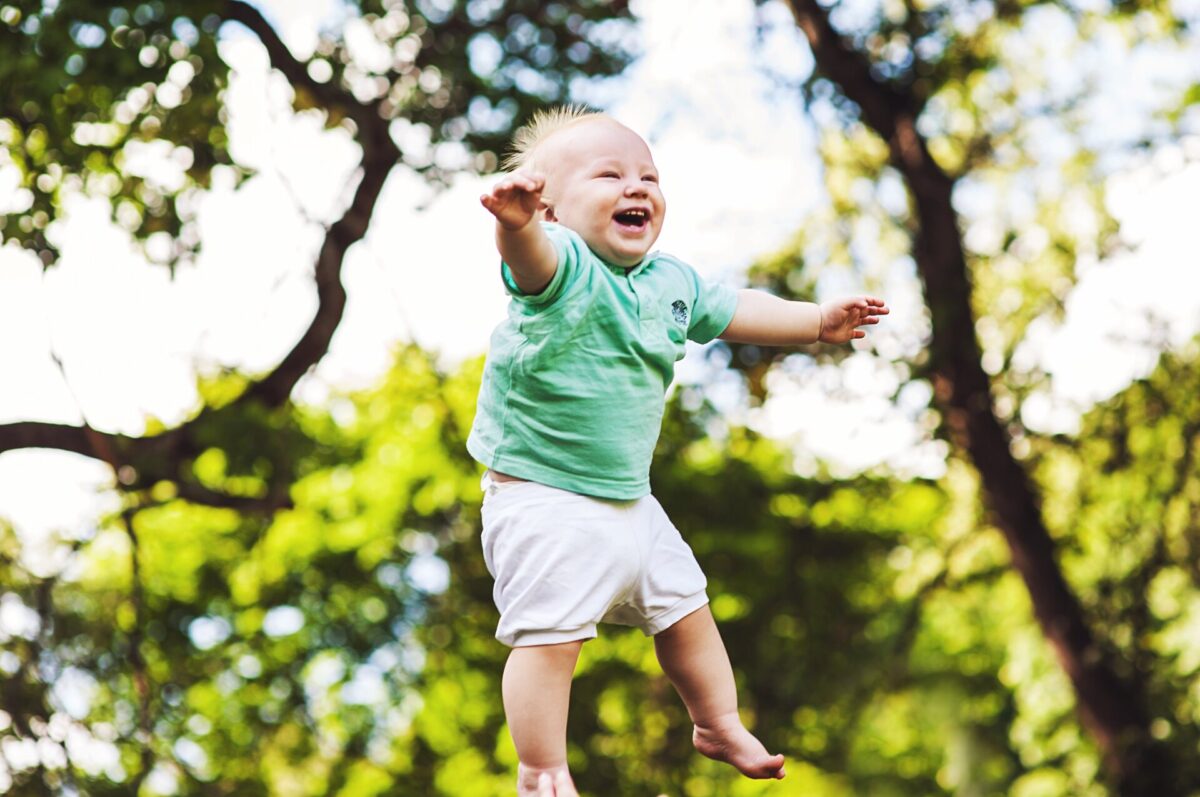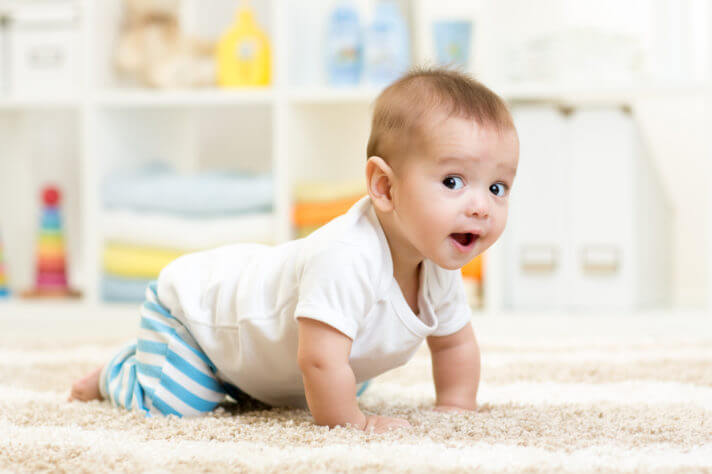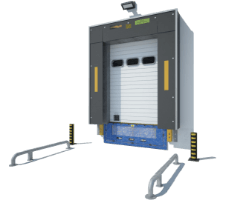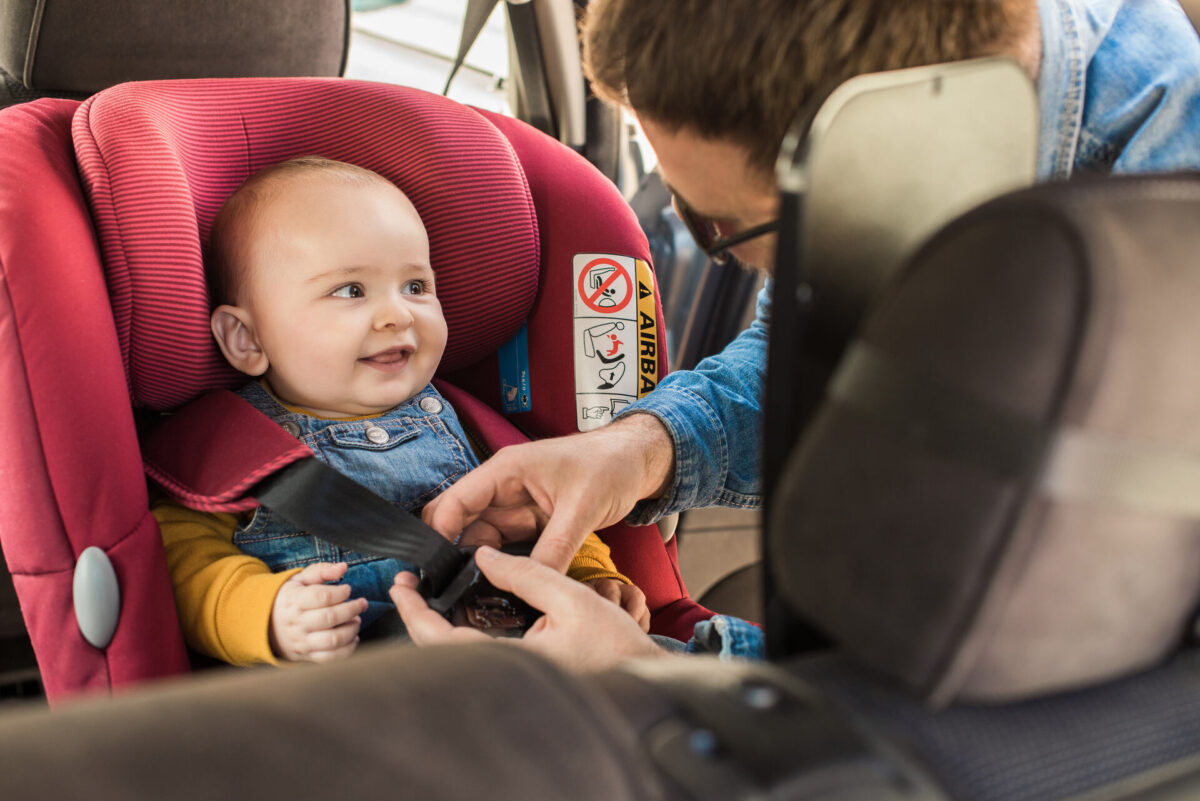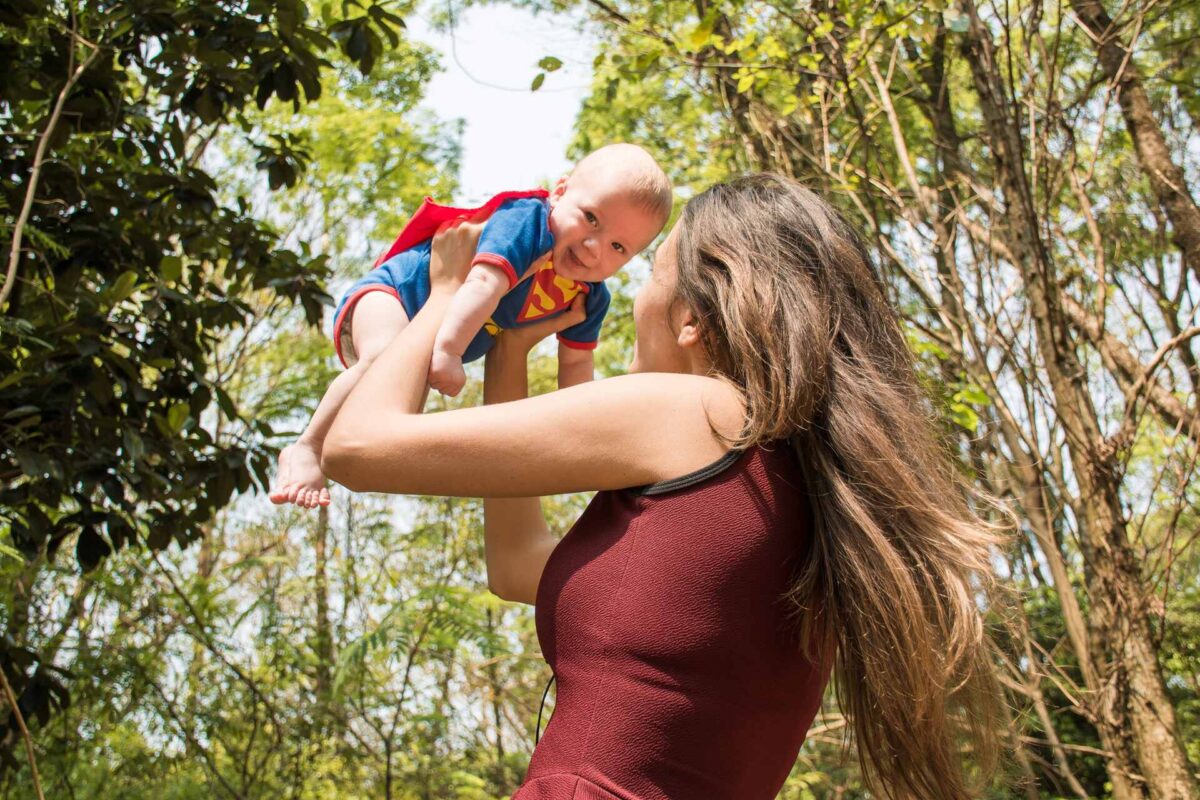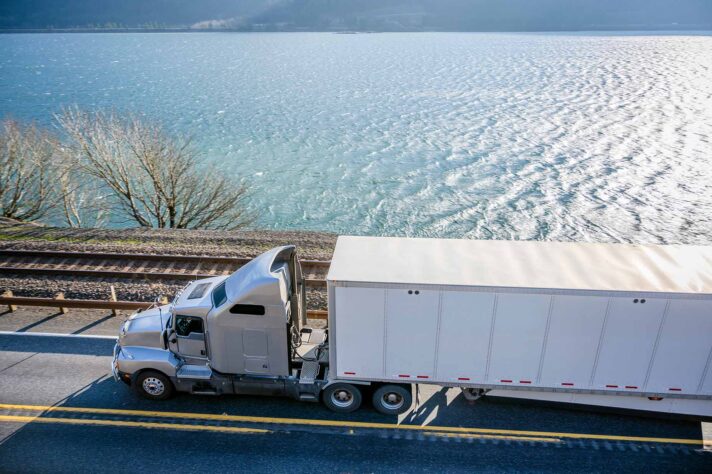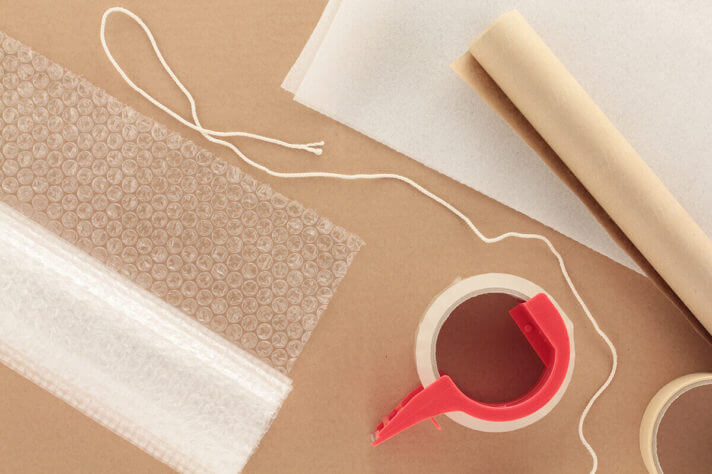Moving cross-country can be a daunting task, but add an infant to the mix, and the stress level can skyrocket. With all the extra planning and preparation that goes into caring for a little one, it can be overwhelming to even consider relocating. However, moving with a newborn can be a smooth and successful journey with a little bit of foresight and some helpful tips – and we’re here to help you navigate this exciting but challenging new adventure!
With the right planning and preparation, you can make moving with an infant less overwhelming
What’s the Importance of Preparation and Planning When Moving With a Newborn?
As you already know, a newborn’s routine and environment are critical to their health and well-being, and any disruption to this routine can cause stress and discomfort. Therefore, planning ahead allows you to maintain as much consistency as possible for your baby during the move.
Not only that, but packing and traveling with an infant requires careful consideration of their unique needs, such as feeding, sleeping, and medical care. Adequate preparation and planning can ensure that you have all the necessary supplies and equipment on hand to keep your baby comfortable and safe throughout the relocation to a new state.
In addition, finding new healthcare providers, such as a pediatrician, can be a time-consuming process. Starting the search early and having a plan in place can help ensure that your baby receives the best possible care in your new location. By taking the time to plan ahead and consider your baby’s needs, you can make your relocation easier and a much more positive experience for both you and your little one.
Right preparation is essential to minimize stress and ensure a smooth transition
Preparing for Moving With an Infant
As challenging as it can be, it is possible to make your relocation stress-free when you are informed and prepared. Therefore, before you start with the usual relocation-related tasks on your to-do list, let’s first discuss essential relocation tips on how to prepare for moving with a baby.
Research Your New Location
One of the most important things on your move-out list is researching your new location. It is important to know your new city or town neighborhoods, schools, and transport systems. You can also use this time to research how the area accommodates young families.
Find Pediatricians and Hospitals
Before organizing packing for relocation, it’s important to establish your healthcare providers in your new location. Therefore, start your search for a pediatrician and pediatrician hospitals before you leave your current home. Additionally, ensure that the hospital and the pediatricians you have chosen are covered by your health insurance – or prepare for finding new health insurance when relocating to a new state.
Baby-Friendly Resources and Facilities
When deciding where to live, it’s important to find baby-friendly resources and facilities. That includes services such as a daycare, preschool, or nanny agency. Also, find out how accessible public areas like parks and playgrounds are. More importantly, check out how safe is the area you’re planning to live in – you can do it easily with the help of apps and websites such as AreaVibes.
Look for parks that are baby-friendly and have areas specifically designed for young children
Packing Essentials for Your Newborn
As a new parent, it’s essential to ensure that your little one has everything they need during the relocation. To achieve that, there are certain items you need to pack, such as:
- Baby clothes and bedding – consider multiplying the amount of clothes you would usually pack, as there’s always a chance of a spill or accident during the trip. Seal bags can ensure baby clothing stays hygienic while unpacking.
- Diaper bag – you can’t go far without a well-stocked diaper bag filled with wipes, diapers, and other essentials, so it must be easily accessible.
- Portable changing station – if you don’t have it already, purchase a pack of portable changing pads, which you can dispose of after each use.
- First aid kit – you can either purchase a pre-made kit or create one yourself.
- Car restraint system – car seats are a crucial and legally binding part of bringing your newborn home.
Don’t Forget Toys and Comfort Items
When preparing for a move with a newborn, it’s easy to get caught up in the essentials like diapers, clothing, and feeding supplies. However, it’s important not to forget about your baby’s toys and comfort items. These items can provide a sense of familiarity and security for your little one during a time of change and uncertainty. By prioritizing these items along with the other essentials, you can help ensure that your baby feels safe, comfortable, and happy during the relocation.
Contact Cross Country Movers to Help With Everything
One way to make the process smoother and less stressful is to get cross-country moving services and allow long-distance movers to help with everything during the relocation. Professional relocation experts, such as Cross Country Moving Company, have the expertise and experience to handle all aspects of your upcoming relocation. The right relocation team will help you move safely, leaving you more time to focus on caring for your baby.
Boxing up all of your belongings can be incredibly time and labor-consuming, especially when you have an infant to care for. By choosing a long-distance moving company and opting for their packing service, you can save time and energy, as well as reduce relocation stress – and be free to focus on your baby’s needs.
Organize the Nursery in Advance
Start by creating a relocation checklist of all the items you’ll need for the nursery, such as a crib, changing table, dresser, and storage for clothes and diapers. Then, plan the layout of the nursery to ensure that you have adequate space for all the necessary items. Consider the flow of the room, and make sure that you can easily access everything you need.
After you arrive at your new home, prioritize setting up the nursery first so that your baby has a comfortable and familiar space to sleep and play in. This will also allow you to unpack other areas of the house without worrying about disturbing your sleeping baby.
If you’re looking for some additional nursery hacks to help you organize it, make sure to check the video below:
Travel Tips and Tricks When Moving With a Baby
When traveling with a baby, it’s important to plan your route and stops carefully. Make sure you have plenty of time for breaks to feed, change, and comfort your baby, and choose rest stops or restaurants that are baby-friendly.
It is estimated that about 35 million Americans move each year, and a significant percentage of those moves involve families with newborns.
If you’re staying in a hotel or other accommodation during your journey, consider bringing a travel crib or bassinet for your baby. This can provide a familiar and safe place for your baby to sleep.
Above all, be flexible when traveling with a baby. Unexpected things can happen, so be prepared to adjust your plans as needed. It’s only natural to put your baby’s needs first, so arm yourself with a little extra patience and understanding.
Choosing the Right Mode of Transportation
Depending on your destination, you’ll probably be traveling by car or plane while leaving cross-country movers to transport all of your relocation inventory. Each mode of transportation has its own benefits and challenges. Here are some factors to consider when choosing the right mode of transportation:
- Distance and travel time -for shorter distances, a car may be the best option, while for longer distances, flying may be more convenient.
- Age and health of your baby – for newborns and young infants, car travel may be more suitable, as it allows for more control over the environment and routine.
- Climate and weather conditions – extreme heat or cold may make car travel uncomfortable or even dangerous for your baby.
- Cost and convenience – while flying may be faster, it can also be more expensive and may require additional fees for baggage and special services, so you must ensure your relocation budget can cover it.
Finally, it’s important to consider the safety and regulations of different modes of transportation.
Ensure that your baby's needs are met and that the journey is as safe and comfortable as possible
Connect With Local Resources and Support
Local resources and support can help you navigate your new community and ensure that your baby’s needs are met. Joining a parenting group or attending parenting classes can be a great way to connect with other parents in your community and get support and advice on caring for your newborn. You can also search for online support groups for parents and connect with others who are going through similar experiences and ask for advice.
Introduce Your Newborn to Their New Environment
It’s important to create a familiar space right from the start – set up your baby’s nursery and other familiar items, such as their crib, toys, and blankets, in the same way as they were in your previous home. This can provide a sense of familiarity and comfort for your baby.
However, to introduce your baby to the new environment, spend time in each room of your new home with your baby, talking to them and letting them explore their new surroundings. At the same time, take your baby on daily walks around the neighborhood – and help them become familiar with the sights, sounds, and smells of your new home.
Be patient, as it may take some time for your baby to adjust to their new surroundings
Don’t Forget That Cross Country Moving Services Are Invaluable Here
Cross-country moving companies can provide invaluable assistance and support when you plan to relocate with a baby, allowing you to focus on caring for your infant and making the transition to your new home as smooth as possible.
By getting long-distance moving services and entrusting the details of the move to experts, you can reduce stress and anxiety and enjoy a smoother and more enjoyable experience for both you and your newborn. Therefore, if you’re looking for a reliable cross-country moving service, don’t hesitate to contact us – and let us provide you with all the support you need during these times.
FAQ
When Is the Best Time to Move With a Newborn?
The best time to relocate with a baby is generally when they are around 3-4 months old, as they will have had time to adjust to life outside the womb and will be more resilient to changes in routine and environment. However, every family’s situation is different, and it’s important to consider factors such as weather, job schedules, and support networks when planning a relocation to a new city.
How Can I Prepare My Newborn for the Move?
Preparing your baby involves keeping their routine as consistent as possible leading up to the relocation and gradually introducing changes in the weeks leading up to it. This might include introducing new routines, such as taking your baby for short car rides. It’s also important to keep your baby’s favorite toys, blankets, and other comfort items close at hand during the relocation to help them feel more secure.
What Are the Essential Items to Pack for My Newborn During the Move?
When boxing up. It’s important to prioritize the baby’s relocation essentials. This might include plenty of diapers and wipes, extra changes of clothes, blankets, bottles or nursing supplies, and any necessary medications or medical equipment. You may also want to pack some toys or other comfort items to help your baby feel more at ease during the journey.
How Can I Ensure My Newborn Stays Comfortable During the Journey?
To ensure your baby stays comfortable during the journey, it’s important to pack all the necessary items for feeding, changing, and sleeping. You may also want to bring along a portable bassinet or other sleeping arrangements to help your baby feel more at home. Be sure to keep your baby well-fed and hydrated, and try to keep them as comfortable as possible with blankets, pillows, or other comfort items.
What Precautions Should I Take When Traveling by Car, Plane, or Public Transportation With a Newborn?
When traveling, choosing a car seat or other safety restraint that is appropriate for your baby’s size and weight is important, as well as taking frequent breaks to give your baby time to stretch, feed, and change. If traveling by plane, be sure to check with the airline about their policies for traveling with infants, and consider bringing along a nursing cover or other supplies to make feeding more comfortable.
In any case, be sure to bring along any necessary medications or medical equipment, and check with your doctor before traveling to ensure that your baby is healthy enough for the journey.
How Can I Maintain My Newborn's Feeding and Sleeping Routine During the Move?
Maintaining your newborn’s feeding and sleeping routine can be challenging, but it’s important to try to keep things as consistent as possible. This might include packaging all the necessary feeding and sleeping supplies, such as bottles, formula, breast pump, and a portable crib or bassinet.
How Do I Find a New Pediatrician and Healthcare Services in My New Location?
Finding a new doctor in your new location is an important part of ensuring your baby’s health and well-being. You may want to start by asking for recommendations from friends or family members in the area or by checking with your insurance provider to see which doctors and hospitals are covered in your new location. You can also use online resources, such as the American Academy of Pediatrics or the Healthgrades website, to find pediatricians and healthcare providers in your area.
How Can I Help My Newborn Adjust to Their New Home and Environment?
First, try to be as consistent as possible with your baby’s routine, including their feeding and sleeping schedule. This can help them feel more secure and comforted in their new surroundings. You may also want to gradually introduce your baby to new sights and sounds in your new location, such as taking walks around the neighborhood or visiting local parks or attractions. Finally, be sure to spend plenty of one-on-one time with your baby to help them feel loved and supported during this time of change.
Are There Any Special Considerations for Moving Long Distances or Internationally With a Newborn?
Be sure to check with your airline or other transportation providers about their policies for traveling with infants, including any necessary documentation or safety requirements. You may also want to consider breaking up the journey into smaller, more manageable segments, with plenty of breaks for feeding, changing, and rest. Finally, be sure to pack all the necessary supplies for your baby, including formula, diapers, wipes, and any necessary medications or medical equipment.
What Tips Do You Have for Setting up a New Nursery After Moving?
Setting up a new nursery after relocating to a new home can be a fun and exciting process, but it can also be overwhelming. Start by choosing a location in your new home that feels comfortable and safe for your baby, such as a quiet corner of the bedroom or a separate nursery space.
Then, prioritize the essentials, including a crib or bassinet, changing table, and storage for clothes and diapers. You may also want to consider adding some personal touches, such as artwork or decorations, to make the space feel more welcoming and personalized for your baby. Finally, be sure to baby-proof the room and any other areas of your new home that your baby will have access to, to help keep them safe and secure.


